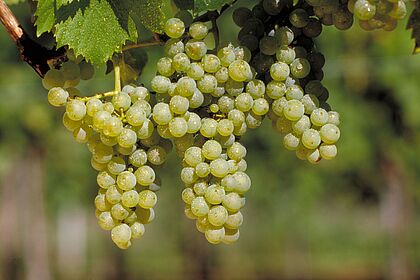ミュラー・トゥルガウ (リヴァーナー)|Müller-Thurgau
白ぶどう品種
Müller-Thurgau / Rivaner
Müller-Thurgau, also commonly known as Rivaner, is the second most planted grape in Germany and accounts for 12% of the total vineyard area with 12, 057 ha in 2018.
It was created in 1882 in Geisenheim by Professor Hermann Müller from Thurgau in Switzerland. It was long assumed to be a cross between Riesling and Silvaner (hence “Rivaner”), however, this was disproved by genetic analysis some time ago. The real “parents” are Riesling and Madeleine Royale.
It yields about 30% more than Riesling and ripens quite early - usually in the beginning of the harvest. While it requires less sun and makes few demands of the climate, it does need more rain than Riesling, as well as soil with good drainage.
Its wines are generally light, uncomplicated, with a flowery bouquet and mild acidity. Müller-Thurgau often carries a hint of Muscat in its flavor. The wines are best consumed while being fresh and young, at any occasion. Dry versions are increasingly marketed under the synonym Rivaner. It also makes a delightful fragrant sparkling wine.
Just like Riesling, Müller-Thurgau represents a central part in the history of German wine.

Müller-Thurgau / Rivaner
